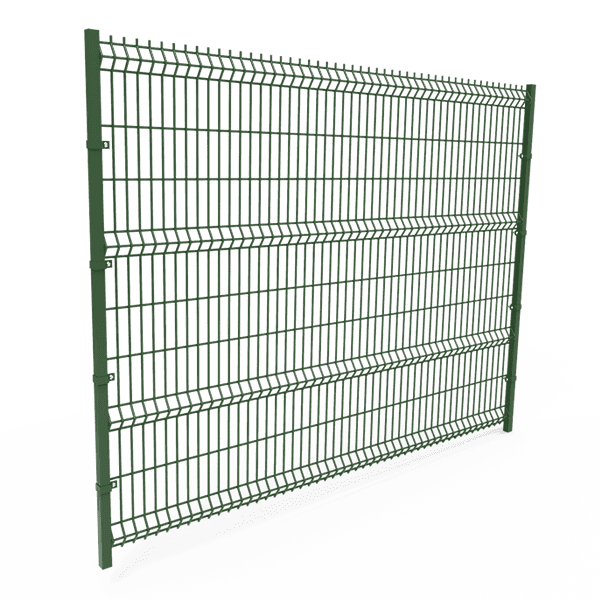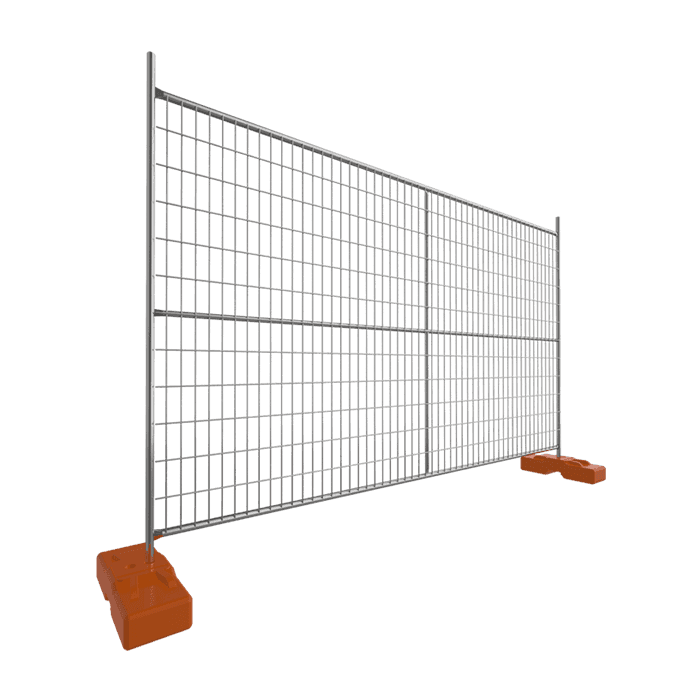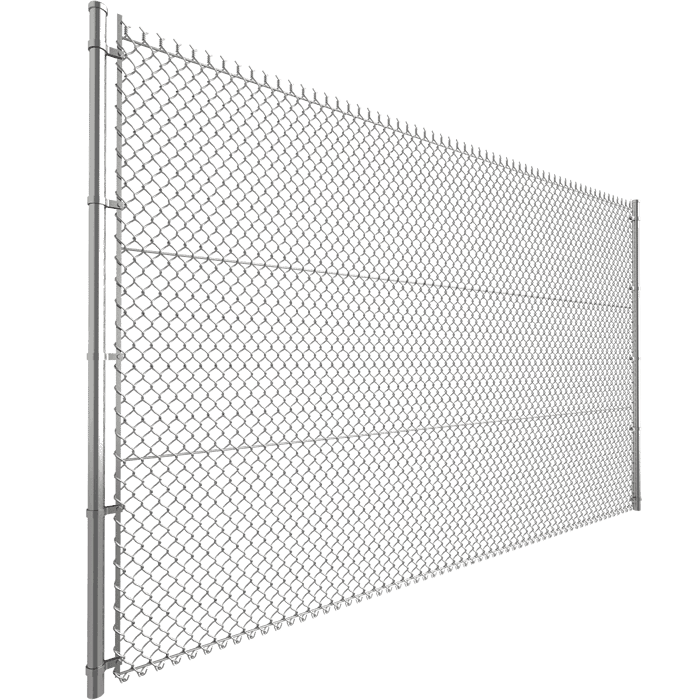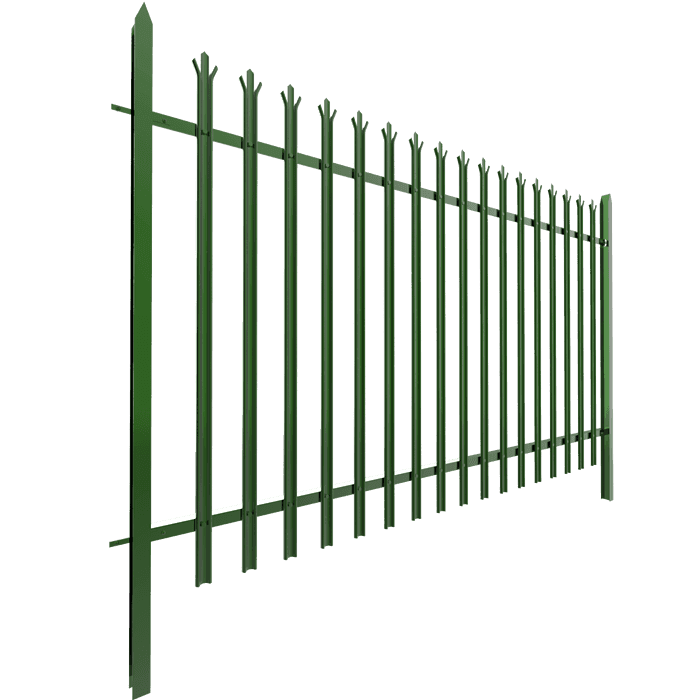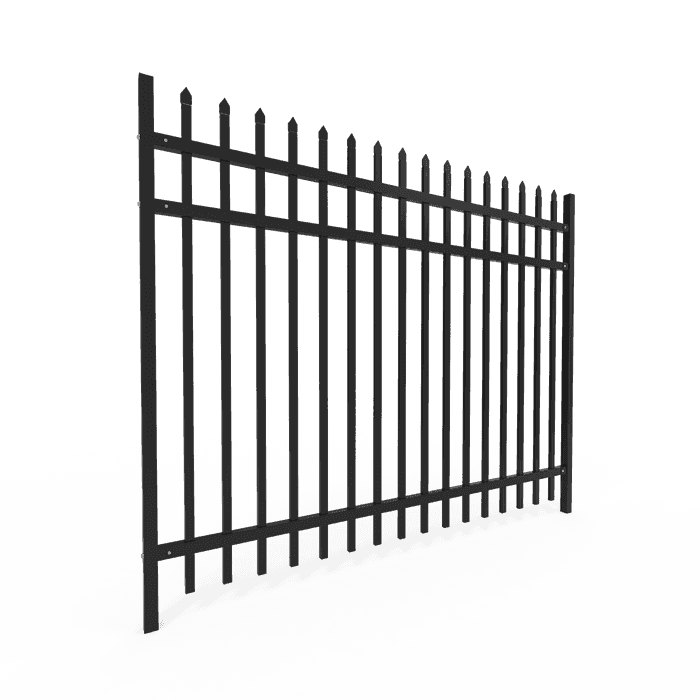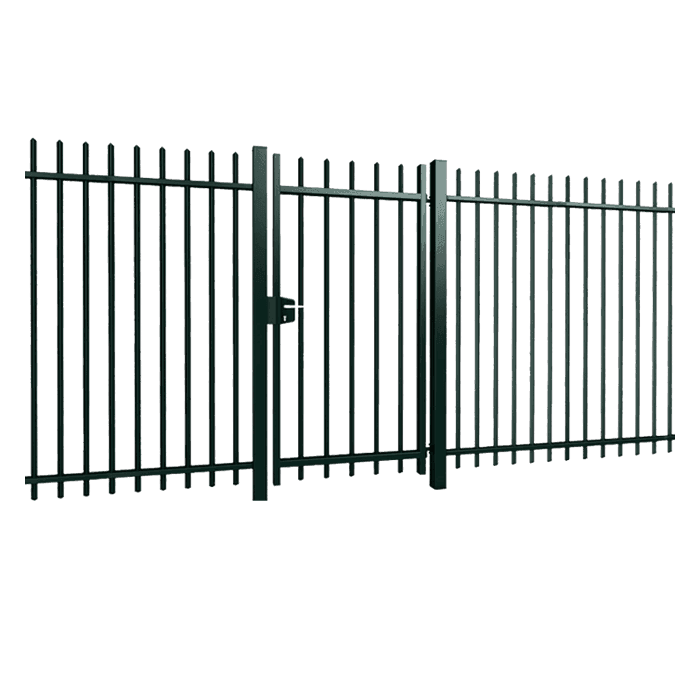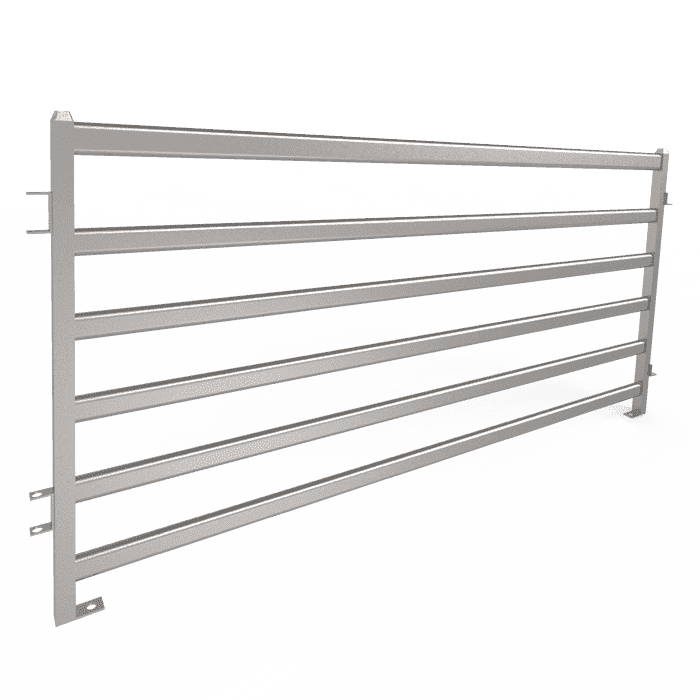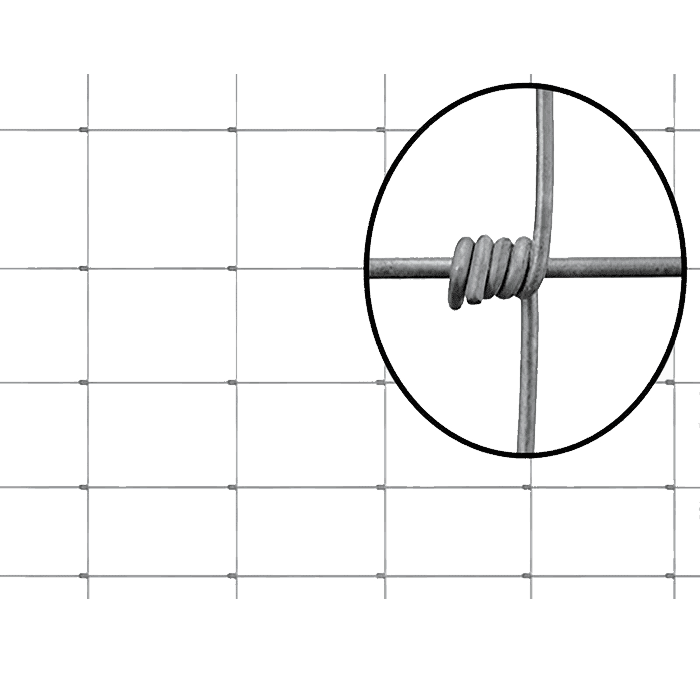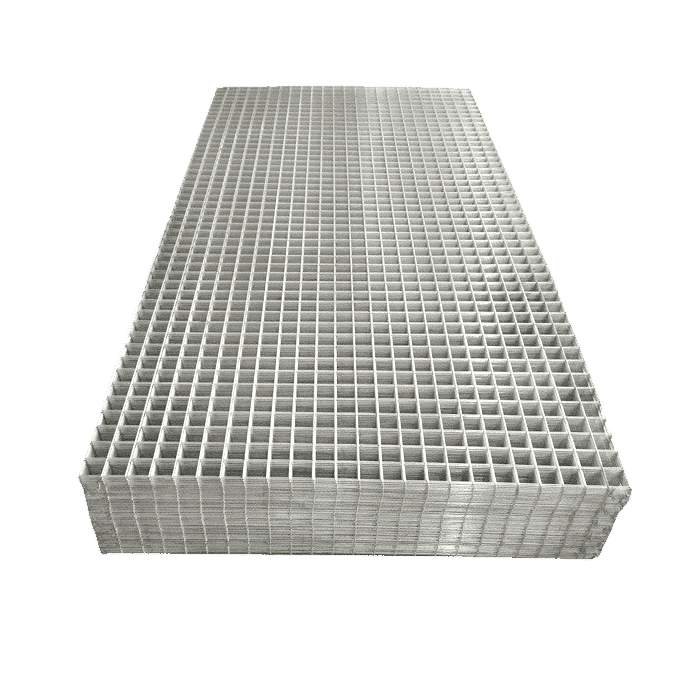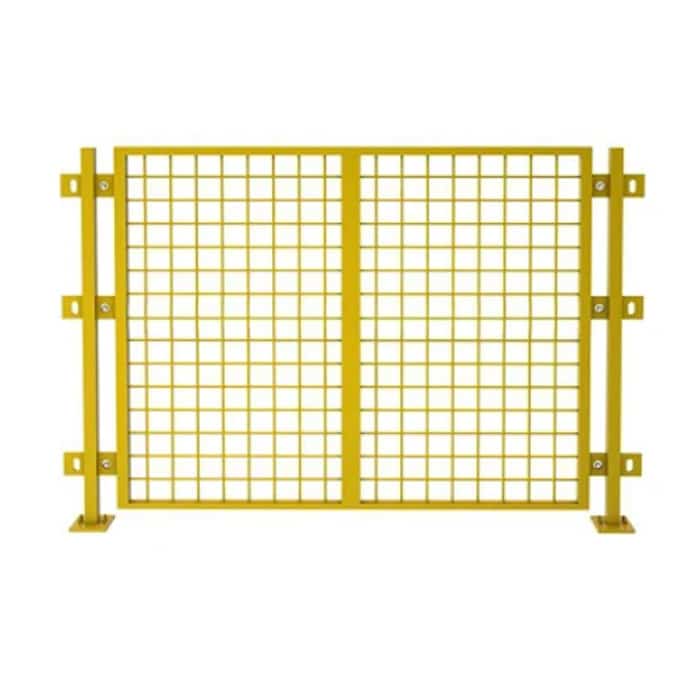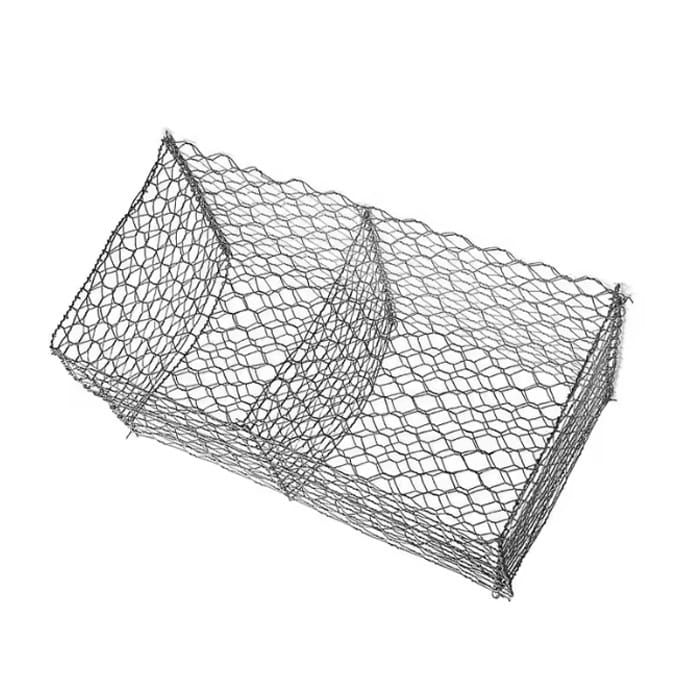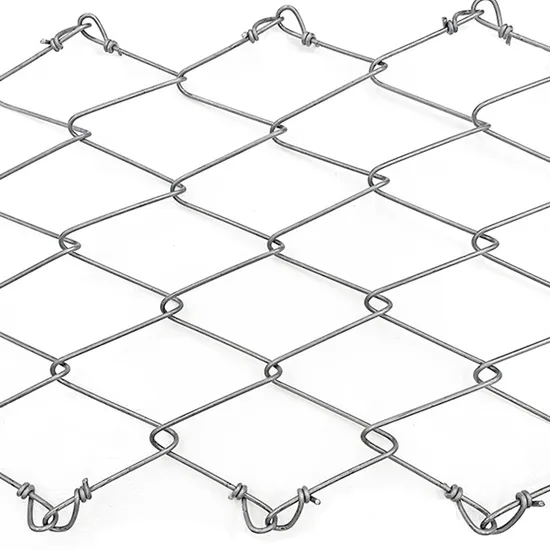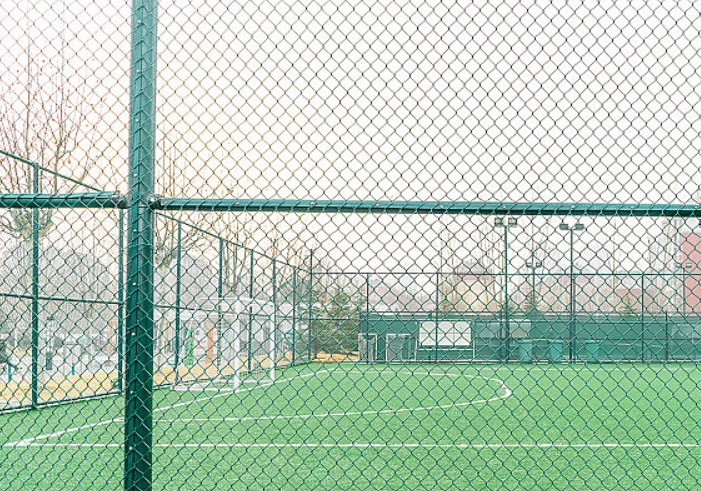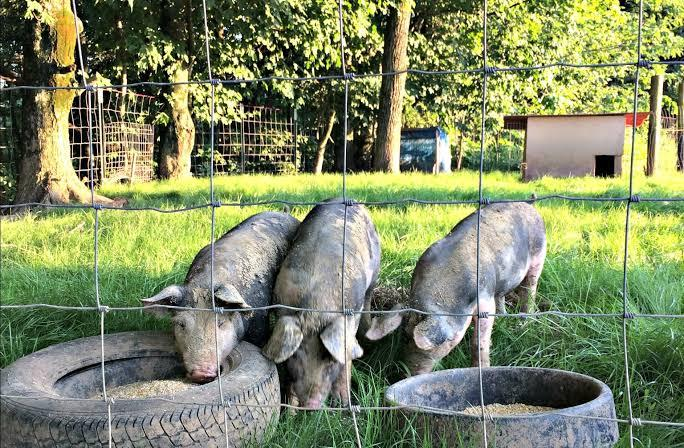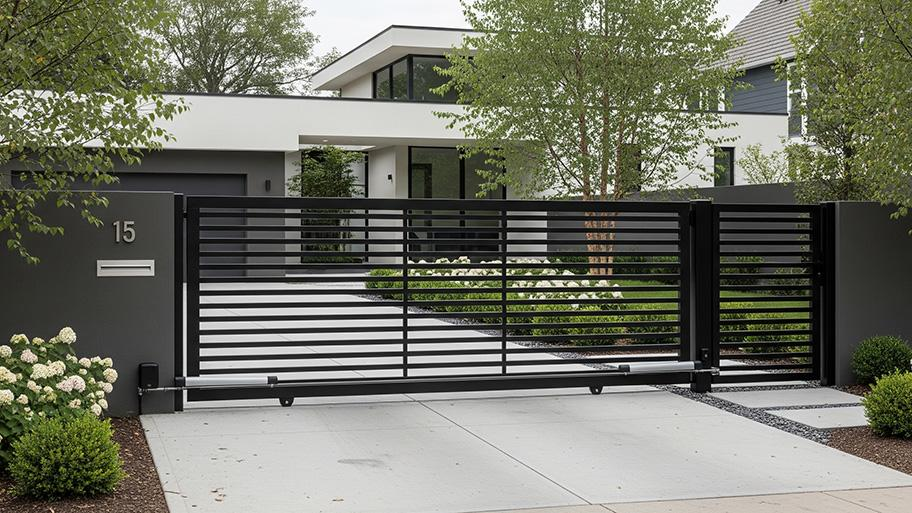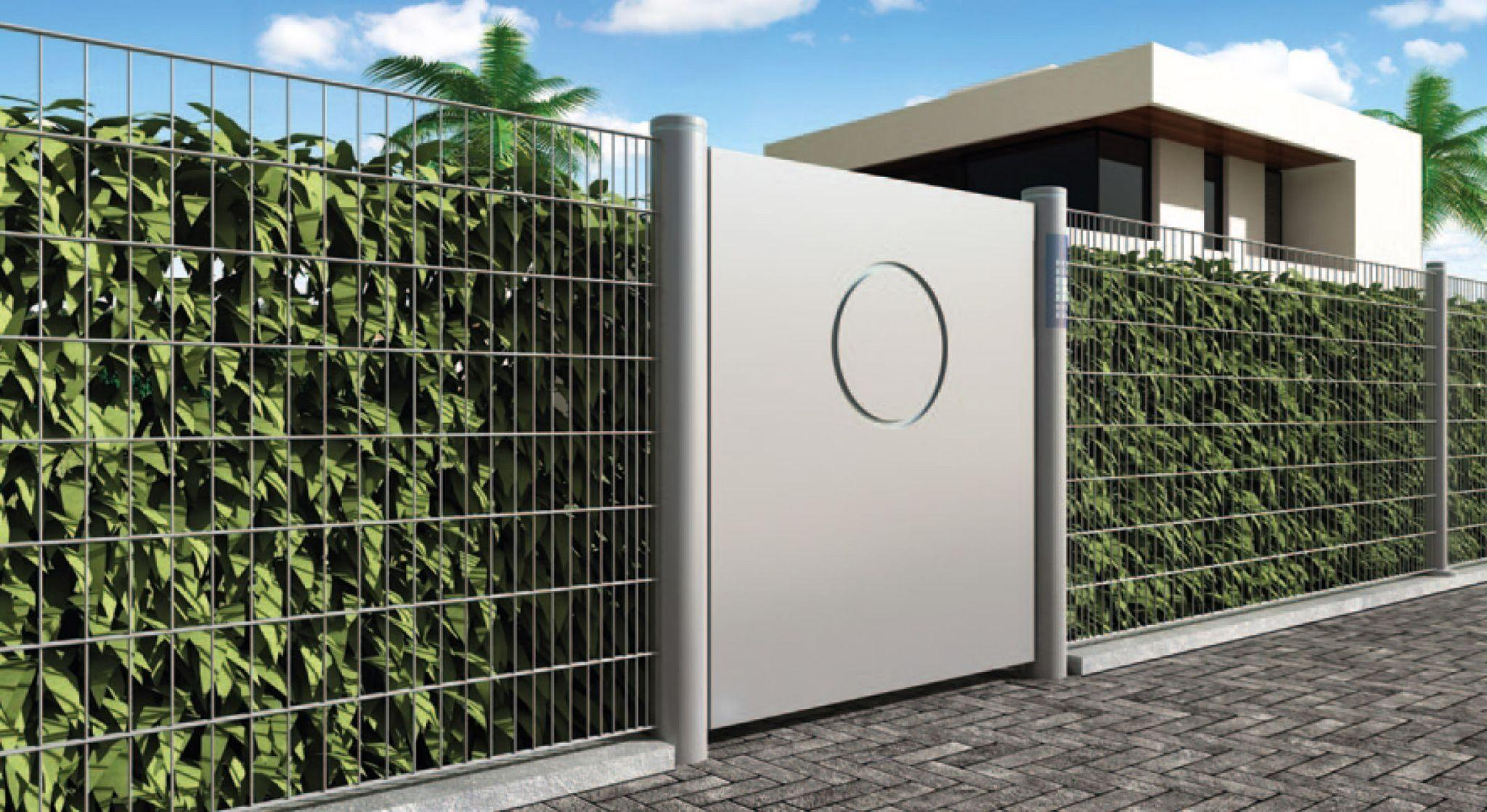Table of Contents
Wire fencing is a popular choice for a variety of applications, from protecting residential properties to containing livestock on farms. Known for its versatility and usefulness, wire fencing comes in a variety of forms, such as chain link, barbed wire, welded wire, and electric fencing, each of which can be tailored to specific needs. This type of fencing is favored for its affordability, durability, and ease of installation, making it a go-to solution for many property owners.
However, like any fencing option, a wire fencing has its pros and cons. Understanding these pros and cons can help you make an informed decision as to whether a wire fencing is the right choice for your property. This article aims to provide a comprehensive overview of the pros and cons of wire fencings, helping you gauge their suitability for your specific requirements.
Introduction to Wire Fencing
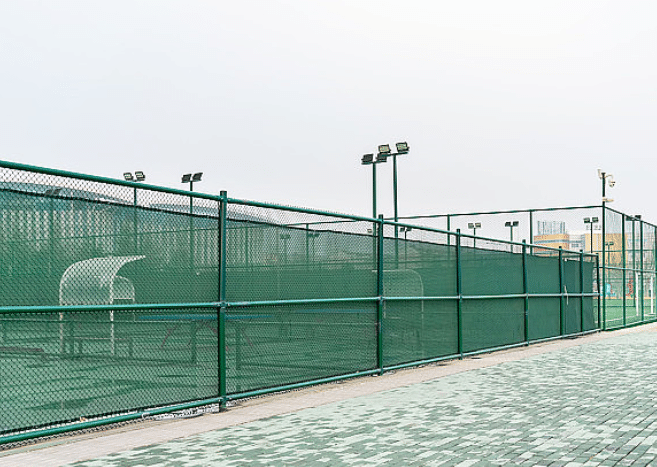
Wire fencing is a widely utilized method for securing properties, delineating boundaries, and providing containment in various settings, including residential, agricultural, commercial, and industrial environments. This type of fencing comes in several forms, such as chain-link, barbed wire, welded wire, electric, and woven wire, each designed to meet specific needs and applications. Known for its cost-effectiveness, durability, and ease of installation, wire fencing offers significant advantages. It provides excellent visibility, making it easy to monitor activities within and around the enclosed area. Additionally, wire fencing is versatile and customizable, suitable for everything from garden enclosures to high-security perimeters. However, it also presents some drawbacks, including limited aesthetic appeal and privacy, potential safety risks, and susceptibility to rust and corrosion. Understanding the various types and their respective advantages and limitations can help you decide on the most appropriate fencing solution for your property.
Types of Wire Fencing
Wire fencing comes in various forms, each tailored to specific applications and requirements. Below is an overview of the most common types of wire fencing, including their characteristics and typical uses.
Chain-Link Fencing
Chain-link fencing is one of the most widely recognized types of wire fencing. Made from galvanized or coated steel wire, chain-link fences form a diamond pattern, creating a durable and flexible barrier.
Features
- Durability: Resistant to corrosion and weather conditions.
- Security: Often used in residential, commercial, and industrial properties for security purposes.
- Visibility: Allows clear sightlines, making it ideal for areas where monitoring is important.
Typical Uses
- Enclosed yards and gardens.
- Securing commercial and industrial properties.
- Creating safe play areas for children and pets.
Barbed Wire Fencing
Barbed wire fencing consists of twisted wires with sharp barbs at regular intervals. It is primarily used for security and containment purposes.
Features
- Deterrence: The sharp barbs prevent climbing and intrusion.
- Cost-Effective: Relatively inexpensive and easy to install.
- Maintenance: Requires regular inspections to ensure barbs remain effective.
Typical Uses
- Securing agricultural land and containing livestock.
- Protecting high-security areas, such as prisons and military installations.
Welded Wire Fencing
Welded wire fencing is made from intersecting steel wires welded together at each junction, forming a rigid mesh.
Features
- Strength: Provides a sturdy and durable barrier.
- Versatility: Available in various mesh sizes and wire gauges.
- Aesthetics: This can be more visually appealing than chain-link fencing.
Typical Uses
- Securing gardens and residential properties.
- Enclosing small animals or poultry.
- Protecting landscaping and garden features.
Electric Fencing
Electric fencing uses electrified wires to deliver a non-lethal shock to deter animals or intruders.
Features
- Effectiveness: Highly effective for both security and containment.
- Adjustability: Voltage can be adjusted based on specific needs.
- Maintenance: Requires regular checks to ensure the electrical system is functioning properly.
Typical Uses
- Containing livestock and wildlife.
- Securing high-risk areas, such as industrial sites or sensitive installations.
Chicken Wire Fencing
Chicken wire fencing, also known as poultry netting, is a lightweight wire mesh typically used to enclose poultry.
Features
- Lightweight: Easy to handle and install.
- Flexibility: Can be shaped to fit various enclosures.
- Cost-Effective: Affordable option for small-scale applications.
Typical Uses
- Enclosing chicken coops and poultry runs.
- Protecting gardens from small animals.
- Craft projects and temporary barriers.
Woven Wire Fencing
Woven wire fencing consists of vertical and horizontal wires woven together to create a flexible yet durable mesh.
Features
- Durability: Resistant to animal pressure and weather conditions.
- Flexibility: Can conform to uneven terrain.
- Security: Offers good containment for larger animals.
Typical Uses
- Containing livestock and horses.
- Securing agricultural properties.
- Boundary fencing for rural areas.
Each type of wire fencing offers unique advantages and is suited to specific applications. Chain-link and welded wire fencing provide robust security for residential and commercial properties, while barbed wire and electric fencing are effective for high-security and agricultural uses. Chicken wire and woven wire fencing are ideal for small-scale enclosures and livestock containment. By understanding the characteristics and typical uses of these various wire fencing types, property owners can make informed decisions about the best fencing solution for their needs.

Advantages of Wire Fencing
Wire fencing offers numerous benefits, making it a popular choice for various applications. Here, we discuss the key advantages of wire fencing, including cost-effectiveness, durability, security, visibility, versatility, low maintenance, quick installation, customizability, and environmental impact.
Cost-Effectiveness
One of the most significant advantages of wire fencing is its cost-effectiveness. Compared to other fencing options such as wood, vinyl, or wrought iron, wire fencing materials are generally less expensive. Additionally, the installation process is straightforward and less labor-intensive, further reducing costs. This makes wire fencing an attractive option for large-scale projects, agricultural uses, or budget-conscious property owners.
Durability
Wire fencing is known for its durability. High-quality wire fences, such as chain-link and welded wire, can withstand harsh weather conditions, including heavy rain, strong winds, and snow. They are also resistant to corrosion, especially when galvanized or coated with protective materials. This durability ensures a long lifespan with minimal wear and tear, making wire fencing a reliable long-term investment.
Security
Wire fencing provides a high level of security. Barbed wire and electric fencing are particularly effective at deterring intruders and containing livestock. The sharp barbs of barbed wire can prevent unauthorized access, while electric fencing delivers a shock to discourage trespassing. Chain-link and welded wire fencing also offer robust physical barriers, making it difficult for intruders to penetrate.
Visibility
Unlike solid fences, wire fencing offers excellent visibility. This feature is especially beneficial for security purposes, as it allows property owners and security personnel to monitor activities on both sides of the fence easily. Visibility is also advantageous in agricultural settings, where it is important to keep an eye on livestock and detect potential threats quickly.
Versatility
Wire fencing is highly versatile and suitable for a wide range of applications. It can be used in residential areas to enclose gardens and yards, in agricultural settings to contain livestock and protect crops, in commercial properties for security, and in industrial areas to mark boundaries. The various types of wire fencing, such as chain-link, barbed wire, welded wire, electric, chicken wire, and woven wire, cater to different needs and preferences, making wire fencing a flexible solution for diverse requirements.
Low Maintenance
Wire fencing requires minimal maintenance compared to other fencing types. Regular inspections and occasional repairs are usually sufficient to keep the fence in good condition. Galvanized or coated wire options are resistant to rust and corrosion, further reducing the need for upkeep. This low maintenance requirement makes wire fencing an attractive option for property owners who prefer a hassle-free fencing solution.
Quick Installation
The installation process for wire fencing is relatively quick and straightforward. Professional installers can erect wire fences efficiently, minimizing disruption to the property owner. This is particularly beneficial for large properties or situations where fencing needs to be installed rapidly. The simplicity of the installation process also means that property owners can potentially install wire fencing themselves, saving on labor costs.
Customizability
Wire fencing can be customized to suit specific needs and preferences. Property owners can choose the height, gauge, and mesh size of the wire to match their requirements. Additionally, various accessories, such as gates, tension wires, and privacy screens, can be added to enhance the functionality and appearance of the fence. Customizability ensures that wire fencing can be tailored to meet the unique demands of different applications.
Environmental Impact
Wire fencing has a lower environmental impact compared to some other fencing materials. For example, wooden fences require the cutting down of trees, whereas wire fencing materials, such as steel, can be recycled. Additionally, the open design of wire fencing allows for the free movement of small wildlife, reducing the impact on local ecosystems. This eco-friendly aspect makes wire fencing a sustainable choice for environmentally conscious property owners.
Wire fencing offers numerous advantages, making it a practical and popular choice for a variety of applications. Its cost-effectiveness, durability, security, visibility, versatility, low maintenance, quick installation, customizability, and environmental impact all contribute to its widespread adoption. By understanding these benefits, property owners can make informed decisions about their fencing needs and choose the most suitable solution for their specific requirements.
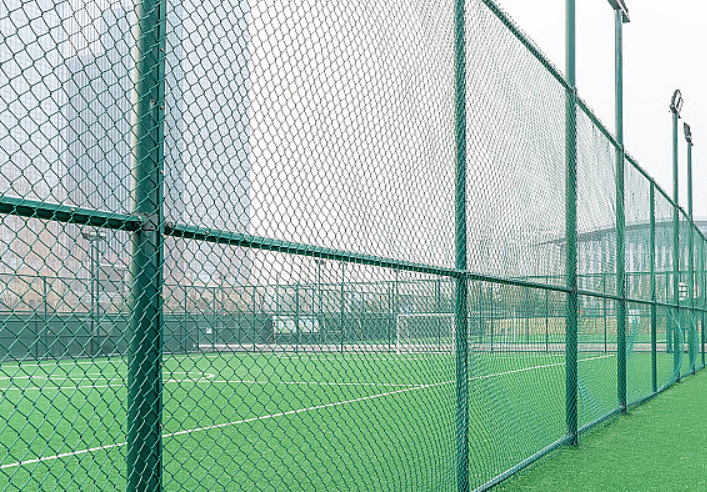
Disadvantages of Wire Fencing
While wire fencing offers many benefits, it also has several drawbacks that must be considered. Understanding these disadvantages can help property owners make informed decisions about whether wire fencing is the best choice for their specific needs. Here, we explore the key disadvantages of wire fencing, including aesthetic limitations, limited privacy, potential for injury, susceptibility to rust and corrosion, difficulty in repair, lack of sound barrier, installation challenges on uneven terrain, potential for vandalism, and limited design options.
Aesthetic Limitations
One of the primary drawbacks of wire fencing is its aesthetic appeal. Many people find wire fences less visually appealing compared to alternatives like wood, vinyl, or wrought iron. The industrial look of wire fencing may not complement the landscaping and architectural style of certain properties, particularly in residential areas. This can be a significant concern for property owners who prioritize the appearance of their fencing.
Limited Privacy
Wire fencing provides limited privacy due to its open design. Unlike solid fences, wire fences do not block the view, allowing passersby to see through the fence easily. This can be a disadvantage for property owners who desire a secluded and private space. While privacy screens or additional landscaping can help mitigate this issue, they can also increase the overall cost and maintenance requirements.
Potential for Injury
Certain types of wire fencing, such as barbed wire and electric fences, pose a risk of injury to humans and animals. Barbed wire can cause cuts and punctures, while electric fences deliver shocks that, although non-lethal, can be painful. Careful consideration and proper installation can help minimize these risks. Additionally, clear signage should be used to warn people about the presence of barbed wire or electric fencing to prevent accidental injuries.
Susceptibility to Rust and Corrosion
While many wire fences are treated to resist rust and corrosion, cheaper or improperly coated options may still be susceptible. Over time, exposure to moisture and harsh weather conditions can cause the wire to deteriorate, reducing the fence’s lifespan and effectiveness. Regular maintenance, such as applying a protective coating or rust inhibitor, can prevent rust and corrosion, but this increases overall maintenance requirements.
Difficulty in Repair
Repairing wire fencing can be challenging, especially if the damage is extensive. While minor repairs, such as fixing a broken wire or replacing a section of mesh, can be done relatively easily, more significant damage may require professional assistance. Additionally, matching the original materials and ensuring the repair is seamless can be difficult. This can result in increased costs and time to restore the fence to its original condition.
Lack of Sound Barrier
Wire fencing does not provide a sound barrier, which can be a disadvantage in noisy environments. Wire fencing offers no such benefit as solid fences, which can help block noise from roads, neighbors, or industrial areas. This can be a significant drawback for property owners seeking a quieter, more peaceful environment. In such cases, additional measures, such as planting dense vegetation or installing sound barriers, may be required to mitigate noise.
Installation Challenges on Uneven Terrain
While wire fencing is generally easy to install, it can be challenging to erect on uneven or sloped terrain. Ensuring the fence remains taut and secure on such surfaces requires additional effort and expertise. In some cases, specialized installation techniques or additional materials may be necessary, increasing the overall cost and complexity of the project. Property owners must carefully assess the terrain before choosing wire fencing to ensure it can be installed effectively.
Potential for Vandalism
Wire fencing can be more susceptible to vandalism compared to other types of fences. For example, chain-link fences can be cut with bolt cutters, and barbed wire can be damaged or removed by determined vandals. While this is not a concern in all areas, it can be a significant issue in locations with high crime rates or frequent trespassing. Installing additional security measures, such as surveillance cameras or alarms, can help deter vandalism but also increase the overall cost.
Limited Design Options
Wire fencing offers fewer design options compared to other fencing materials. While customization is possible to some extent, the basic structure and appearance of wire fences remain relatively uniform. This can be a drawback for property owners seeking a unique or decorative fencing solution. The limited design options may not meet the aesthetic preferences of all property owners, particularly those looking for a more visually appealing or personalized fence.
While wire fencing offers numerous advantages, it also has several disadvantages that must be considered. Aesthetic limitations, limited privacy, potential for injury, susceptibility to rust and corrosion, repair difficulty, lack of sound barrier, installation challenges on uneven terrain, potential for vandalism, and limited design options are significant drawbacks that property owners should weigh carefully. By understanding these disadvantages, property owners can make more informed decisions about whether wire fencing is the right choice for their specific needs and circumstances.
Choosing the Right Wire Fencing
Selecting the appropriate wire fencing for your property involves several important considerations. To ensure you make the best choice, it’s essential to evaluate the purpose and application, material and coating, height and design, and installation and maintenance requirements. Here’s a detailed guide to help you choose the right wire fencing.
Purpose and Application
The first step in choosing the right wire fencing is to clearly define its purpose and application. Different types of wire fencing are designed for specific needs, and understanding your primary requirements will help narrow down your options.
- Residential Use: For enclosing gardens, yards, or pools, chain-link or welded wire fencing is a popular choice due to its durability and visibility. For pet containment, consider welded wire or chicken wire fencing.
- Agricultural Use: Barbed wire, woven wire, and electric fencing are ideal for containing livestock and protecting crops from wildlife. Chicken wire is suitable for poultry enclosures.
- Commercial and Industrial Use: Chain-link fencing is commonly used for its strength and security. Electric fencing can provide an additional deterrent for high-security areas.
- Temporary Barriers: Electric fencing and certain types of woven wire fencing can be set up quickly and moved as needed, making them suitable for temporary enclosures.
Material and Coating
The material and coating of a wire fence can affect its durability, maintenance, and overall performance. Common materials include galvanized steel, stainless steel, and coated wires. Choosing the right material and coating will depend on your budget, environmental conditions, and the desired lifespan of the fence.
- Galvanized Steel: Offers good corrosion resistance and durability, making it suitable for most applications. It is cost-effective and widely available.
- Stainless Steel: Provides superior corrosion resistance and strength, ideal for coastal areas or harsh environments. However, it is more expensive than galvanized steel.
- Coated Wires: PVC or vinyl coatings add an extra layer of protection against rust and corrosion. Coated wires are available in various colors, which can enhance the fence’s appearance and blend with the surroundings.
Height and Design
The height and design of the wire fencing should align with its intended purpose and the specific needs of your property.
- Height: For residential fences, standard heights range from 4 to 6 feet. Agricultural fencing for livestock containment typically requires heights of 4 to 5 feet for smaller animals and up to 6 feet or more for larger animals. High-security areas may need fences that are 8 feet or taller.
- Mesh Size: The size of the mesh openings can vary based on the type of fencing and its application. Smaller mesh sizes provide more security and containment, making them suitable for pets and small animals. Larger mesh sizes are sufficient for general boundary marking and livestock containment.
- Design: Consider the aesthetic appeal and functional requirements of the fence design. Chain-link and welded wire fences offer a clean, modern look, while woven wire fences provide a more traditional appearance. Barbed wire and electric fences prioritize functionality over aesthetics.
Installation and Maintenance
Proper installation and ongoing maintenance can extend the life of your wire fencing and increase its effectiveness.
- Installation: Assess whether you will handle the installation yourself or hire professionals. Some types of wire fencing, like chain-link and welded wire, can be installed relatively easily by property owners with basic tools. More complex installations, such as electric fencing or fencing on uneven terrain, may require professional expertise.
- Maintenance: Regular inspections and maintenance are necessary to ensure the fence remains in good condition. This includes checking for rust, corrosion, and damage to the wires or posts. Galvanized and coated wire fences typically require less maintenance, while barbed wire and electric fences need regular upkeep to maintain their effectiveness and safety.
Choosing the right wire fencing involves careful consideration of its purpose and application, the material and coating used, the appropriate height and design, and the installation and maintenance requirements. By thoroughly evaluating these factors, you can select the most suitable wire fencing solution for your property, ensuring it meets your needs for security, durability, and aesthetic appeal. With the right choice, wire fencing can provide a reliable and cost-effective solution for a wide range of applications.
Summary
Wire fencing is a versatile and practical option for various applications, including residential, agricultural, commercial, and industrial settings. It offers numerous advantages such as cost-effectiveness, durability, security, visibility, versatility, low maintenance, quick installation, customizability, and a lower environmental impact. However, wire fencing also has its drawbacks, including aesthetic limitations, limited privacy, potential for injury, susceptibility to rust and corrosion, difficulty in repair, lack of sound barrier, installation challenges on uneven terrain, potential for vandalism, and limited design options.
When choosing wire fencing, it is crucial to consider factors such as purpose and application, material and coating, height and design, and installation and maintenance requirements. By weighing these pros and cons and assessing your specific needs, you can make an informed decision that ensures your property is effectively enclosed and protected. Wire fencing remains a popular choice due to its balance of functionality and affordability.
Get Professional Wire Fencing Solutions
When it comes to securing your property with high-quality wire fencing, partnering with a reputable manufacturer is crucial. HUADE, a leader in China’s wire fencing industry, brings 30 years of invaluable experience to the table. Renowned for its commitment to excellence, HUADE offers a comprehensive range of wire fencing solutions tailored to meet diverse needs. Whether you require fencing for residential, agricultural, commercial, or industrial applications, HUADE’s expertise ensures you receive products that are durable, secure, and cost-effective.
HUADE’s wire fencing products are crafted using top-grade materials and cutting-edge manufacturing techniques, ensuring long-lasting performance and minimal maintenance. We provide customized solutions, allowing you to choose the right fencing type, height, and design to suit your specific requirements. With HUADE, you benefit not only from superior products but also from exceptional customer service and professional installation support.
Trust HUADE for your wire fencing needs and experience the perfect blend of quality, reliability, and innovation, ensuring your property is well-protected and aesthetically pleasing.

